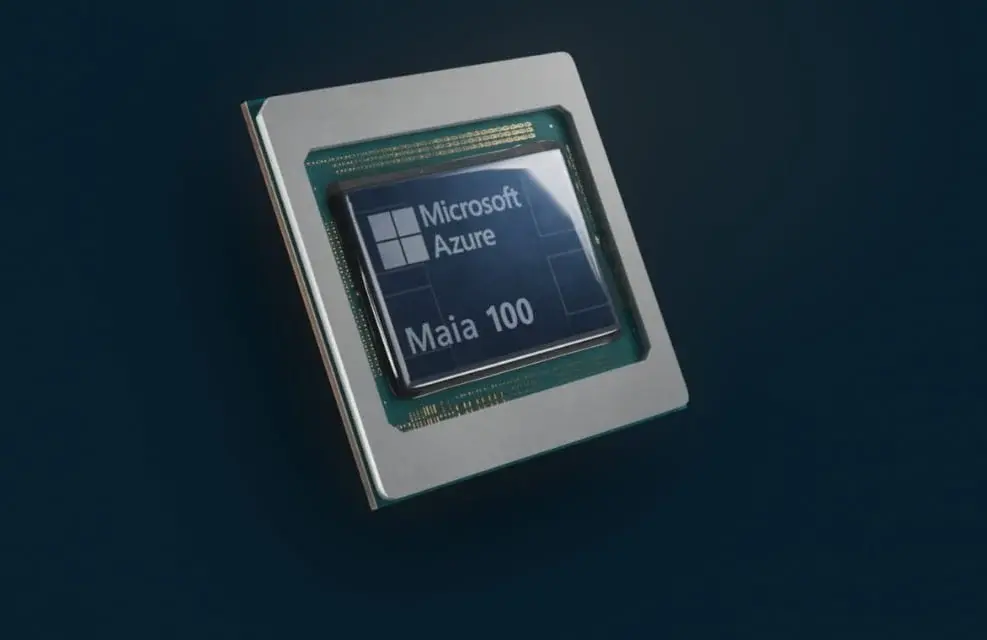Microsoft Unveils Custom-Designed Chips: Maia AI Accelerator and Azure Cobalt CPU
Microsoft has recently made a groundbreaking move in the tech race by introducing two custom-designed chips, the Azure Maia AI Accelerator and Azure Cobalt CPU. These chips have undergone years of covert refinement in a Silicon lab on Microsoft’s Redmond campus and are set to revolutionize the landscape of AI services and cloud computing.
Maia AI Accelerator
The Maia chip is specifically tailored to accelerate AI computing tasks, addressing the increasing costs associated with delivering AI services. It has been optimized to power Microsoft’s $30-a-month “Copilot” service and is designed to efficiently run large language models, including those integral to Microsoft’s Azure OpenAI service. By routing most AI efforts through common foundational AI models, Microsoft aims to significantly improve efficiency and tackle the challenge of high AI service costs.
Azure Cobalt CPU
Complementing the Maia chip is the Cobalt chip, which is a central processing unit (CPU) strategically designed to compete with Amazon Web Services’ Graviton series of in-house chips. Cobalt utilizes technology from Arm Holdings and has undergone rigorous testing, proving its capabilities by powering Microsoft’s business messaging tool, Teams. Unlike its counterparts, Cobalt will not be restricted for internal use only; Microsoft plans to sell direct access to Cobalt, presenting a competitive alternative to AWS’s chips.
Acknowledging the stiff competition with Amazon Web Services, Microsoft is keen on emphasizing the competitive performance and price-to-performance ratio of its Cobalt chip. This strategic move aligns with Microsoft’s overarching strategy of designing chips to enhance efficiency, reduce costs, and ultimately offer superior solutions to customers.
Technical details reveal that both Maia and Cobalt chips are manufactured using cutting-edge 5-nanometer technology from TSMC. The Maia chip, in a cost-effective twist, employs standard Ethernet network cabling instead of the more expensive custom Nvidia networking technology used in OpenAI’s supercomputers.
Analysts view Microsoft’s approach with the Maia chip as a clever maneuver, allowing the company to capitalize on selling AI services in the cloud until personal devices become powerful enough. AWS’s Graviton chip, which reportedly boasts 50,000 customers, highlights the fierce competition in the AI chip market, with AWS emphasizing ongoing innovation in delivering future chip generations.
The unveiling of the Maia and Cobalt chips marks a significant step in Microsoft’s quest for efficient, scalable, and sustainable computing power. These chips not only address the demands of AI workloads but also play a crucial role in optimizing infrastructure systems from silicon to servers for both internal and customer workloads.
As Microsoft sets its sights on designing second-generation versions of the Maia and Cobalt chips, the future promises continued optimization across every layer of the technological stack for enhanced performance, power efficiency, and cost-effectiveness. Microsoft’s venture into custom-designed chips is poised to reshape the AI landscape and propel the industry toward new horizons.


Leave a Reply